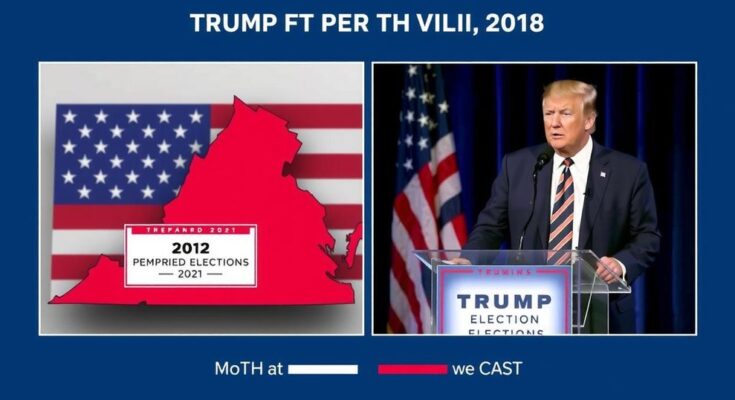The Virginia special elections in Loudoun County will evaluate voter sentiments on the Democratic and Republican fronts as they anticipate the outcomes influencing upcoming gubernatorial and midterm elections. With Democrats hoping to maintain legislative control and Republicans aiming to capitalize on economic dissatisfaction, these elections could reflect broader societal tensions and the shifting political landscape as both parties prepare for future contests.
Two months subsequent to the Democrats losing control at the federal level, Virginia’s special elections in Loudoun County represent a significant early evaluation of voter sentiment following Donald Trump’s election. The Democratic Party anticipates retaining a state House and Senate seat in this Washington, D.C. suburb while maintaining their slight majorities in the legislature. Conversely, Republicans are expected to secure a Senate seat further west, with both parties keenly monitoring voter engagement in light of the upcoming Virginia gubernatorial race and the 2024 midterm elections. The election results could imply whether voters are resisting Trump’s policies or if his broad coalition endures after November’s election, as indicated by political analysts.
In Loudoun County, Trump garnered approximately 10,000 more votes compared to the previous election cycle, whilst the Democratic candidate received nearly 9,092 fewer votes than Biden. The Republican Party is counting on ongoing voter dissatisfaction with economic conditions to sway public support, while Democrats depict the control of state legislation as a necessary counterbalance to Trump’s influence in Washington. As articulated by Democratic state Representative Kannan Srinivasan, there is a need to send a clear message affirming Virginia’s political stance post-election.
The current races involve Democratic candidate JJ Singh and Republican Ram Venkatachalam competing for Srinivasan’s vacated House seat, while Srinivasan runs against Republican Tumay Harding for the Senate seat. Democrats are concentrating their efforts on legislation aimed at securing reproductive rights, voting rights, and same-sex marriage, emphasizing the importance of these initiatives in the governance framework of Virginia. With a relatively educated and engaged electorate, both parties are aware of the competitive and dynamic nature of these elections, particularly against the backdrop of previous elections that demonstrated significant shifts in public sentiment against the Republican agenda under Trump.
Republican Governor Glenn Youngkin has publicly endorsed Harding and Venkatachalam, describing them as “commonsense conservative leaders.” Their campaigns are bolstered by expectations of fulfilling tax relief promises and addressing civic concerns prevalent among the Virginia electorate. The Democratic Legislative Campaign Committee is actively supporting candidates Srinivasan and Singh, indicative of the strategic importance of these elections within the broader national Democratic agenda. Several high-profile Virginia Democrats participated in campaigning efforts to ensure these legislative seats do not shift in favor of the Republican Party.
The outcome of these special elections, following historical trends following Trump’s prior electoral cycles, may prove crucial for both parties as they gear up for the general assembly elections and the governorship. Political experts suggest that past anti-Trump sentiments galvanized Democratic victories, raising the question of whether a repeat of such backlash may be anticipated for the upcoming electoral contests.
The topic of the article revolves around the implications of special elections in Virginia, particularly focused on Loudoun County, as early indicators of voter enthusiasm post-Trump’s ascension to presidency. Following the Democrats’ loss of federal power, these elections are seen as pivotal in forecasting voter attitudes ahead of gubernatorial and midterm elections. The dynamics of the races reflect key issues of the contemporary political landscape, notably concerning economic dissatisfaction and pivotal legislative agendas around social issues that resonate within the electorate. This special election serves not only as a platform for immediate local governance but also as a strategic test for party strength and voter engagement.
In summary, the forthcoming special elections in Virginia serve as a crucial early assessment of voter sentiment Democratic versus Republican enthusiasm following Trump’s election. The outcomes will provide essential insights into public support for each party’s narratives and performance, particularly concerning significant social and economic issues. With both parties vigorously campaigning, these elections will be instrumental in shaping the political battleground as the state prepares for upcoming legislative and gubernatorial contests.
Original Source: www.cnn.com




